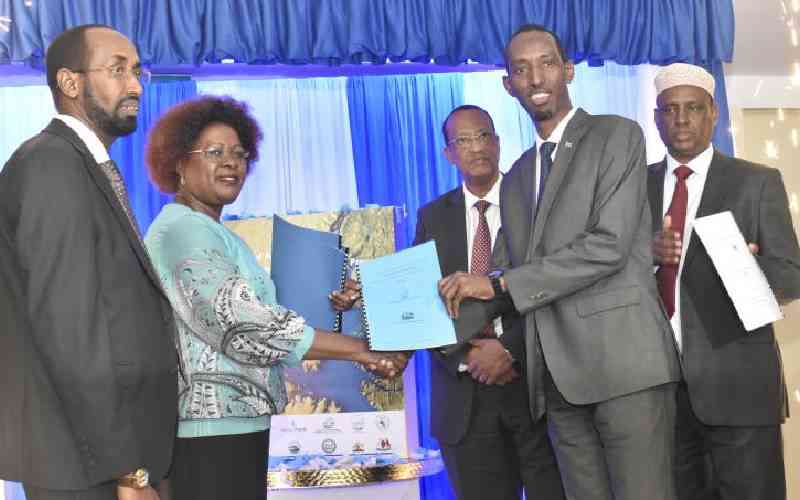×
The Standard e-Paper
Fearless, Trusted News

In the parched village of Banissa in Mandera County, there are no taps. The only water available to drink comes from the single drying borehole about 13 kilometres away.
The land is bare with small rocks and scattered acacia shrubs. Mandera is one of the Northern Kenya counties that have experienced unprecedented drought in five consecutive rainy seasons.